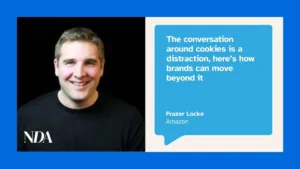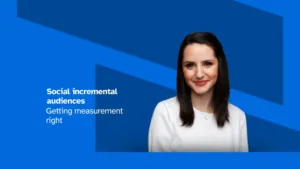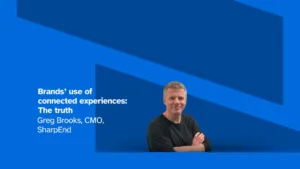By Sara Vincent, UK Managing Director of Utiq
After what seems like years of inertia, confusion and an absence of clarity, 2024 is finally the year when Google will phase out the use of third-party cookies on its market-leading web browser Chrome. For digital advertisers, who have long depended on these cookies to help them scale, target and measure their campaigns, the impact will be significant.
Between the ongoing tightening of international data privacy regulations and the growing use of ad-blocking measures by consumers, the digital advertising community has not had it easy in recent years. However, with Google at last firing the starting gun on cookie deprecation, a new industry collaboration has emerged to help advertisers and publishers to redress the balance.
Utiq is a partnership between the four largest telcos in Europe: Deutsche Telekom AG, Orange SA, Telefonica SA and Vodafone Group plc. The UK is the fourth market to launch the offering, following successful launches in France, Germany and Spain in 2023.
It was my great pleasure to join Utiq recently as the partnership’s UK Managing Director, following five years with Index Exchange and four at Just Premium (now part of GumGum). My personal interest was initially piqued when I saw Utiq’s launch press release back in May
2023. The fact that it was a solution backed by the telcos was very interesting and gave it instant credibility. Since then, discussions with the senior leadership team at Utiq have only cemented my belief that Utiq is solving a problem for the whole of the digital ecosystem in a truly privacy-compliant way.
Utiq’s clear purpose is to bring responsible, effective advertising and marketing to the open web, through a Telco-powered first party identifier that harnesses authentic consent. Accurately addressing consented audiences at scale has been a critical challenge for the industry for many years, with transparent reach, frequency and measurement issues related to this.
A question of choice
User consent and choice should be at the core of digital advertising, for the simple reason that when people’s trust, privacy and choice is respected, then better business outcomes and more responsible online experiences for users will follow. Utiq gives users a very clear opportunity to consent, and also more importantly to revoke consent, for targeted advertising. The user has a choice, and that is as it should be.
For consumers, Utiq offers a very transparent way to give consent. This consent can be revoked at any time, either in relation to an individual brand or publisher, or for all brands and publishers a consumer has given consent to. They can give or revoke this consent quickly and easily via a link on the brand or publisher site, or via our central consenthub.
Significantly, Utiq also eliminates fraud – no bots, just real people. As the service is underpinned by a consent signal generated from a telco network, buyers can be sure they are targeting a real person. Publishers benefit from Utiq by having a deterministic identifier, enabling them to target their marketing efforts better, as well as curate their inventory for buyers.
Utiq is collaborative by design and intended to be a catalyst for industry-wide change. The adtech ecosystem will benefit from Utiq becoming as ubiquitous as the third-party cookie, enabling a move to a digital landcsape that is underpinned by accurate, consented identifiers. That changes the game for everyone. There will always be advertising, so let’s make it responsible, trusted and supporting quality content in the open market.
The time is now
The timing could not be better. 2024 is going to be a pivotal year for the industry – brands, agencies and publishers are all prioritising replacement solutions for the third-party cookie. They are in a test-and-learn phase, and therefore the launch of Utiq in the UK could not be better timed.
Utiq is solving a very real, very timely problem in a privacy- and people-first way. We want to be a catalyst for change, helping create a trusted and responsible ad-funded internet with privacy-first data protection at its heart.A big part of my role will be to help educate the various stakeholders in the digital ad ecosystem that Utiq is a viable way to tackle many of the assorted challenges they are facing right now.
Regulation is changing, privacy is of the utmost priority and ultimately, all stakeholders will need to work with partners who are compliant, so it’s less about convincing, more about educating all parties that there is a better way, that it exists today, and it will be future-proofed.
Data is becoming less accurate and abundant, putting the essence of the free-to-access internet at risk and increasing the dependency on “big tech” for scaled targeting. Something has to change before the open web becomes less valuable for all of us. We should also not ignore the fact that identifiable, authenticated users have enhanced value for both buyers and publishers. We have seen this across the large walled gardens; Utiq is focused on bringing this value to the open web, where users spend most of their time.
Despite the trepidation surrounding the deprecation of third-party cookies, future-facing solutions such as Utiq offer a genuine win-win for brands, publishers and consumers alike. Brands will know that their advertising is being seen by a real person, making their media plans more efficient and, therefore, more sustainable. Publishers can monetise their inventory more efficiently thanks to an engaged audience of consented consumers.
With industry-wide collaboration, we have an opportunity to change online advertising on the open web.









